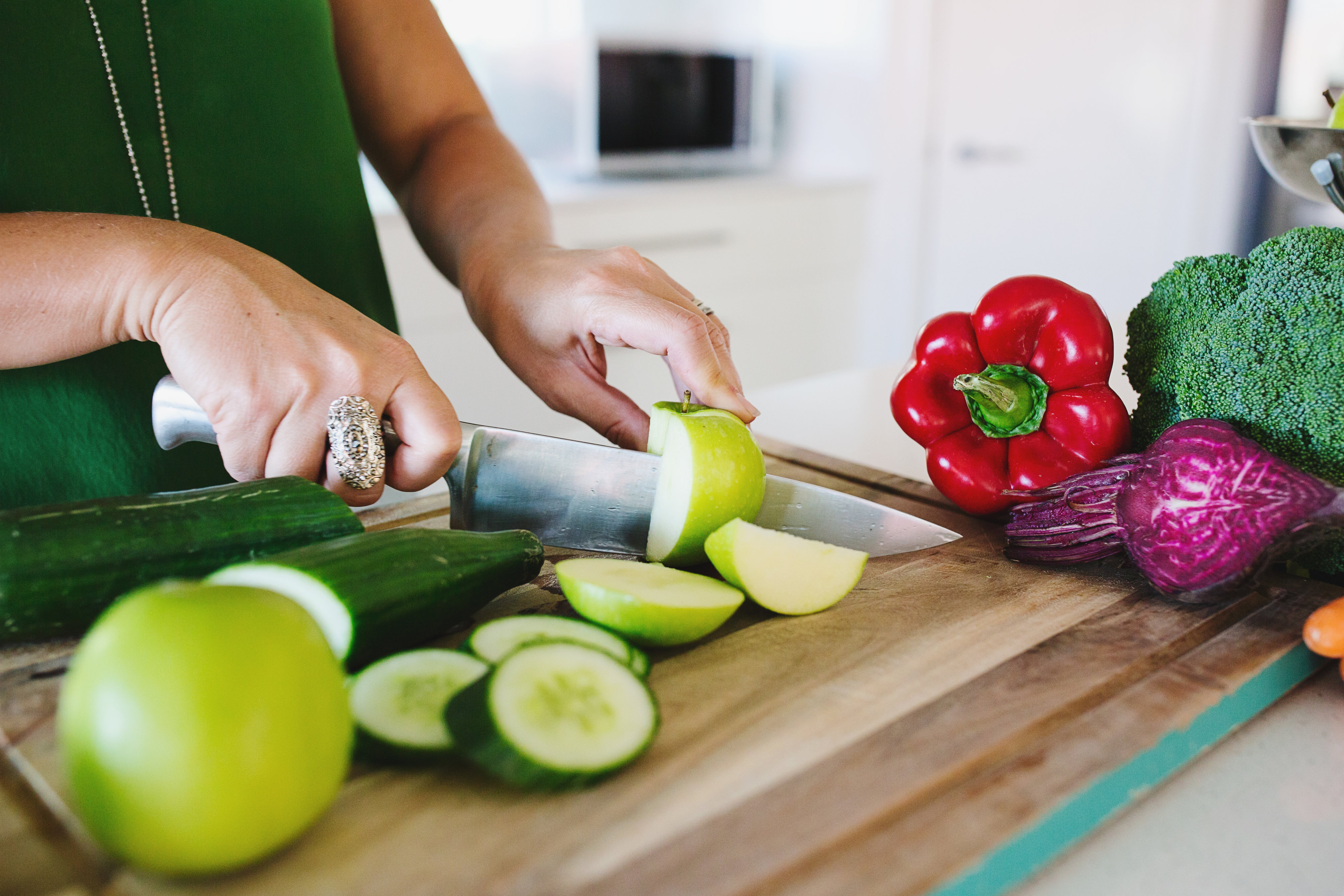The appearance of our skin has been known to be a reflection of what is going on within us including our general health, gut-health and the food we consume. However, is there really such thing as an anti-ageing diet?
Skin & Nutrition – What’s the link?
A reduction in the elasticity, plumpness and firmness of our skin, an increase in dryness and thinness and the appearance of fine wrinkles… These are often the main factors of the appearance of skin ageing. But why does this occur?
Let’s go back to the basics…
Collagen and elastin are your skin’s major proteins. Over time, these proteins degrade which results in structural and functional alterations in your skin cells (1). These alterations occur in 2 distinct ways:
- A dysfunction and decrease in regenerative ability of skin cells resulting in a decline in skin renewal and repair (1), and
- Due to this accumulation of cell dysfunction, the external skin is not able to sufficiently secrete collagen or elastin to rebuild the skins barrier (1).
These pathways are driven and enhanced by oxidative stress and inflammation, caused by long-term exposure to the sun (UV rays), inadequate nutrition, gut permeability issues, chronic stress and smoking (1).
The good news?
These factors are often under YOUR control. See below the 5 ways we can help support our skin health and appear more youthful without botox…
5 Tips for Youthful Skin
1. Up your Intakes of Vitamin C.
Biologically, vitamin C contributes to multiple functions including aiding in collagen synthesis, skin regeneration, antioxidant protection and wound repair (2). In fact, vitamin C itself is an antioxidant – therefore reducing free radicals which contribute to ageing skin.
Cosgrove et al (2) identified that higher intakes of vitamin C were associated with improved skin-aging appearance, whilst lower intakes of vitamin C presented with a greater presence of wrinkles and dryness of the skin. These results were found independent of sun exposure, race, age, energy intake, supplement use and physical activity (2).
VITAMIN C RICH FOODS: Kiwi fruit, citrus fruits, tomatoes, capsicum, broccoli, strawberries and brussel sprouts.
2. Plump your Skin with Essential Fatty Acids.
An increase of essential Fatty Acids (EFA’s) such as omega-3 has been shown to reduce skin dryness, decrease skin atrophy and show a reduction in inflammation (3). EFA’s have to be consumed in our dietary intake as they cannot be produced by our bodies.
EFA RICH FOODS: fish, shellfish, chia seeds, walnuts, hemp oil, hemp seeds and flaxseeds.
3. Ageing Skin
Skin ageing is an inevitable and natural process that we all go through. Dryness, loss of elasticity and hence the reduction of the plumpness and firmness of our skin contribute to the appearance of ageing skin. This is due to a multitude of factors including the ability of our gut to absorb certain vital nutrients efficiently, lack of Vitamin A, collagen declining and an increase in gut inflammation (3).
Although skin ageing reversal may seem impossible, the fact is that improving our gut health will result in slowing down the ‘skin ageing’ process and may ameliorate some symptoms present.
3. Reduce your intake of sugar, high-fat foods and alcohol.
Sugar, high-fat foods and alcohol can all be detrimental to youthful-looking skin. Conjunctively, these foods promote inflammation and oxidative stress in the body – hence accelerating the ageing process (1). This is partly due to the production of harmful compounds called Advanced Glycation End Product’s (AGE’s) which form when fat or protein combine with sugar in the bloodstream (4). AGE’s can also form through food being exposed to high temperatures – particularly that deep frying that goes with your favourite hot chips (4).
In addition to this, the acetone produced from alcohol metabolism promotes certain physiological responses in the body resulting in enhanced skin permeability, increased skin pigmentation and damaging the skins barrier (1).
4. Drink your way to supple skin.
I am sure you have heard this time and time again – Drink. More. Water.
Water is the main component of our cells and tissues, therefore we need to drink more water to ensure our skin is hydrated, supple and reduce the risk of dermatological dysfunctions (5).
A big indicator that you are not drinking enough water is that your urine is a bright yellow. You should be aiming to drink at least 2-3 Litres each day.
5. Replace your skin’s collagen.
As we mentioned previously, collagen protein degrades as a natural process of ageing. Although the oral supplementation of collagen is skepticized by many health professionals, recent studies have shown that it can help to alleviate the skin ageing process (6). Choi et al (6) conducted a systematic review with promising results for short-term and long-term use of collagen. They found that oral collagen supplements increase skin elasticity, hydration and improved skin appearance (6).
The scepticism of these collagen products does come down to one factor – the quality and quantity of collagen in over-the-counter supplements. That’s why, it is important to ensure you are researching good quality collagen peptides to supplement (or getting them from a qualified health practitioner).
The bottom line.
The most important aspect of skin health is ensuring that you are getting a wholesome, balanced diet and following some of tips above to ensure that you are best supporting your skin health.
We have previously been told that the solution to ageing skin is through topical creams, regular facials or changing your features through botox… However, now I hope you can understand that healthy, youthful appearing skin comes from within.
If you feel as though you need some additional support with your skin health, don’t hesitate to book an Initial Nutrition Consultation to see how we can best support your skin and develop a personalised plan.
Written by:
Mollie Caughey-Wade,
Clinical Nutritionist (BSc).

